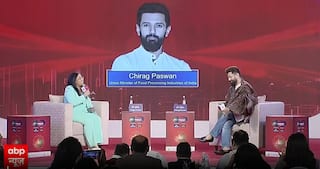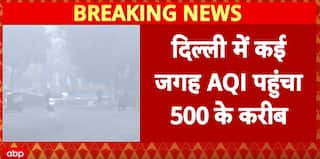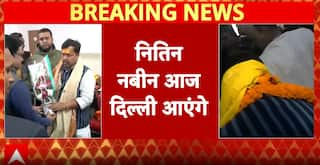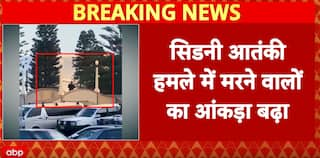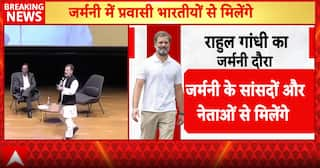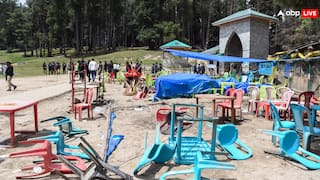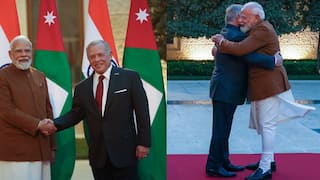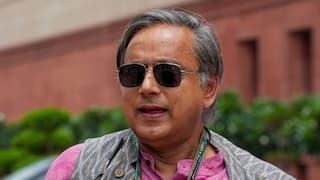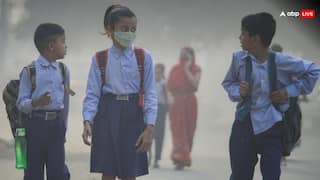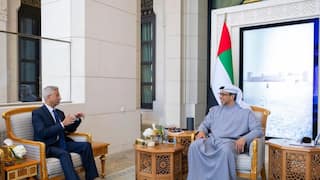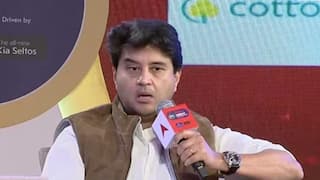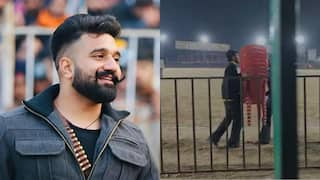Don't Need Amit Shah To Tell Us About Revolutionaries' Role In Freedom Movement, Says Tushar Gandhi
Mahatma Gandhi's great grandson Tushar Gandhi said there is no need for Amit Shah to talk about the contribution of armed revolutionaries in freedom movement as "Bapu" acknowledged their role.

Kozhikode: Mahatma Gandhi's great grandson Tushar Gandhi has said there is no need for Union Home Minister Amit Shah to talk about the contribution of armed revolutionaries in the country's freedom movement as "Bapu" himself had acknowledged their role.
Shah had recently said only one type of narrative of a non-violent movement during the freedom struggle has been "forced through education, history and legends", whereas India's independence was a result of collective efforts, including the contribution of armed revolutionaries.
"We do not need an Amit Shah to say these things. Shah needs to say these things because he does not have anything to say about himself or the ideology he is spawned out of. Bapu himself had acknowledged that independence was not achieved only because of his attempts," Tushar Gandhi said at the ongoing sixth edition of the Kerala Literature Festival (KLF) on Friday.
"He (Mahatma Gandhi) had given credit to everybody, even the earlier attempts by revolutionaries. He had acknowledged the contribution of Netaji (Subhas Chandra Bose) also," he added.
Talking about his latest book, "The lost diary of Kastur, My Ba", Tushar Gandhi said Bapu was an ordinary human being like anyone else and that is why he has not referred to him as "Mahatma" in the book.
According to the 62-year-old author, the "Mahatma" identity is unbelievable and one needs to understand Mohandas Karamchand Gandhi, the ordinary human being who rose beyond his capabilities to achieve things.
"When we put him on the pedestal of a Mahatma, we convince ourselves that he was a Mahatma and could do all those things, and we do not need to do any of these things because we are ordinary human beings. He was as ordinary as anyone of us and yet he did what he did, and that is what we need to bring back to people," he noted.
The book, a reproduction of a rare diary of Mahatma Gandhi's wife Kasturba Gandhi, is a day-to-day account of a tumultuous nine-month period of her life, from January to September of 1933.
The author has also mentioned how profound this recently-discovered diary was in understanding both -- Bapu and Kasturba -- and their relationship.
For instance, he said one entry in the diary talks about the reason why Gandhi used to go on fasts -- "for atonement of his own shortcomings or the shortcomings of those who were closest to him".
"When Bapu started his fasts for the rights of the untouchables in the Yerwada jail, 'Baa' (Kasturba), who was in the Sabarmati prison then, wrote a very political comment in her diary. She said 'this fast of Bapu illustrates that he is losing faith in his followers'.
"It is a very profound statement. Just one statement. She does not say anything else but that Bapu is disappointed by the honesty of those who were closest to him and the fast was for that reason," Tushar Gandhi said, underscoring that contrary to the assumption of many, none of his fasts was to "blackmail" anyone.
Billed as one of Asia's biggest literature meets, the KLF is hosting an eclectic mix of literary and culture icons, ranging from Nobel laureates, Booker Prize-winners, senior politicians to historians, film personalities, diplomats and artistes.
The list of speakers includes 2022 Booker Prize winner Shehan Karunatilaka, Nobel laureates Ada Yonath and Abhijit Banerjee, American Indologist Wendy Doniger, actor Kamal Haasan, author of children's books Sudha Murty and singer Usha Uthup.
(This story is published as part of the auto-generated syndicate wire feed. Apart from the headline, no editing has been done in the copy by ABP Live.)










